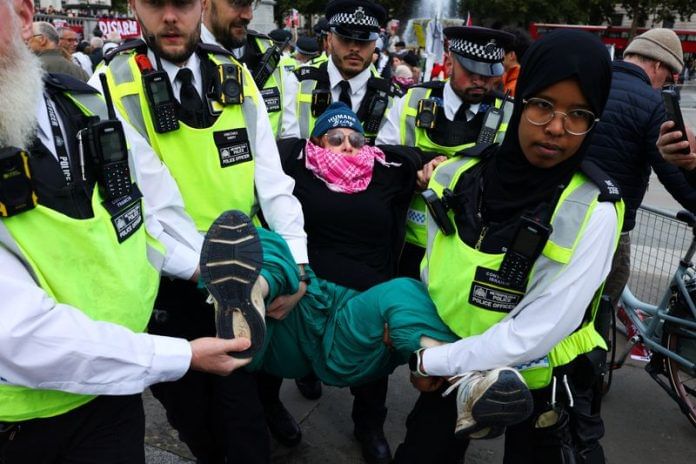LONDON (Reuters) -The British government on Friday lost its bid to block the co-founder of pro-Palestinian campaign group Palestine Action bringing a legal challenge over the banning of the group under anti-terrorism laws.
Huda Ammori, who helped found Palestine Action in 2020, was given permission to challenge the group’s proscription, with her case due to be heard next month.
Britain’s Home Office (interior ministry) asked the Court of Appeal to overturn that decision and rule that any challenge to proscription should be heard by a specialist tribunal.
Judge Sue Carr rejected the Home Office’s appeal, saying Ammori’s case could proceed in the High Court.
Palestine Action was proscribed as a terrorist organisation by the government in July, making it a crime to be a member, which carries a maximum sentence of 14 years in prison.
More than 1,000 people have since been arrested for holding signs in support of the group, with over 100 charged.
Before it was banned, Palestine Action had increasingly targeted Israel-linked companies in Britain, often spraying red paint, blocking entrances or damaging equipment. It accused Britain’s government of complicity in what it said were Israeli war crimes in Gaza.
The group had particularly focused on Israeli defence firm Elbit Systems and Britain’s government cited a raid at an Elbit site last year when it decided to proscribe the group.
Palestine Action was banned a month after some of its members broke into the RAF Brize Norton air base and damaged two planes, for which four members have been charged.
(Reporting by Sam Tobin, editing by William James)
Disclaimer: This report is auto generated from the Reuters news service. ThePrint holds no responsibility for its content.






